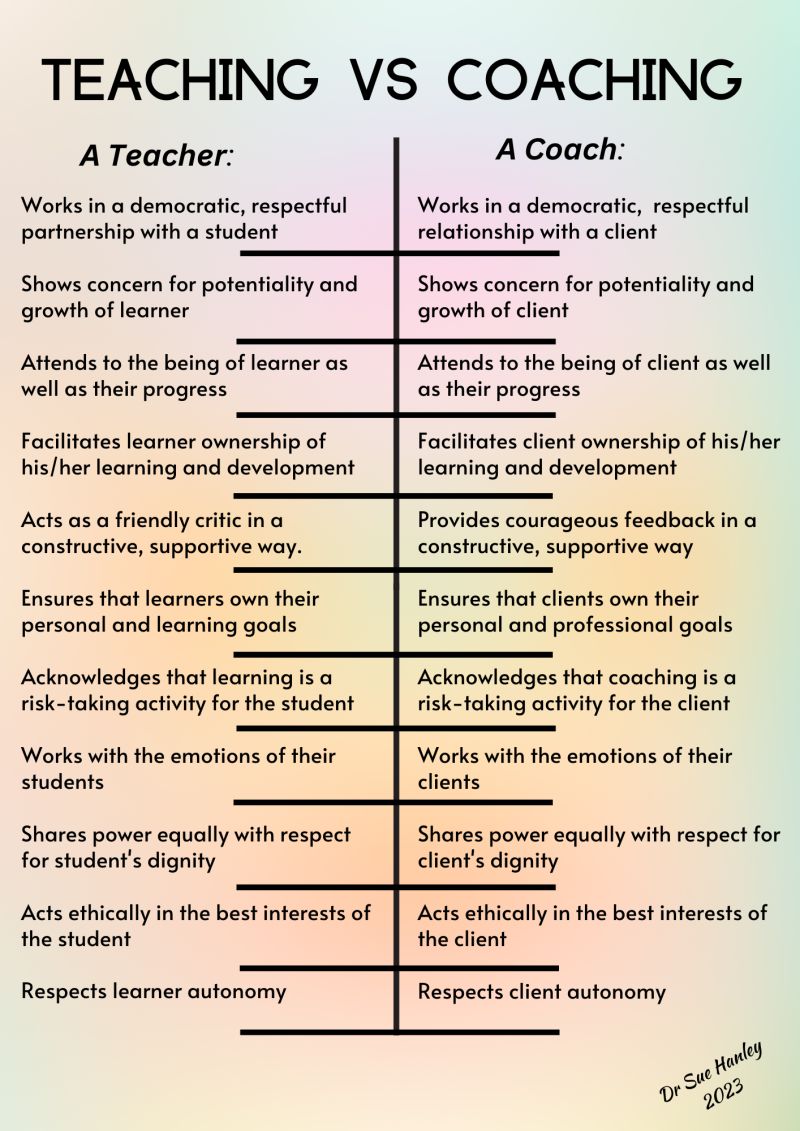In today’s world, the terms teaching and coaching are often used interchangeably. However, they represent distinct approaches to learning and development. While both aim to empower individuals and improve skills, the methods, objectives, and dynamics differ significantly. In this article, we’ll explore the differences, similarities, and scenarios where each is more effective. Let’s dive into the world of teaching vs coaching.
What is Teaching?
Teaching is a structured process where an individual, typically a teacher or instructor, imparts knowledge, skills, and concepts to learners. The focus is on delivering information systematically, ensuring students grasp and retain the material.
Also Read: H100 vs H200 A Comprehensive Comparison of Performance
Key Characteristics of Teaching
- Knowledge Transfer: Teaching involves delivering subject-specific knowledge, theories, and principles.
- Structured Curriculum: Teachers often follow a predefined syllabus to achieve learning objectives.
- Role of Authority: Teachers are seen as authority figures who guide, instruct, and assess learners.
- Focus on Academic Growth: The primary aim of teaching is intellectual and academic development.
Examples of Teaching
- A high school math teacher explaining algebra concepts.
- An online instructor teaching coding basics.
- A professor delivering a lecture on economics.
What is Coaching?
Coaching, on the other hand, is a more personalized and interactive process that focuses on helping individuals achieve specific goals. Coaches act as facilitators, guiding individuals to unlock their potential through self-discovery and problem-solving.
Key Characteristics of Coaching
- Goal-Oriented: Coaching revolves around achieving specific outcomes, whether personal, professional, or athletic.
- Collaborative Process: Coaches and clients work together as partners in the journey of growth.
- Empowerment: Coaching emphasizes self-awareness, accountability, and empowerment.
- Customizable Approach: Coaching adapts to the unique needs and aspirations of the individual.
Examples of Coaching
- A career coach helping someone navigate job transitions.
- A life coach assisting in personal development.
- A sports coach guiding an athlete to enhance performance.
Teaching vs Coaching: Key Differences
| Aspect | Teaching | Coaching |
| Objective | Imparting knowledge and skills. | Facilitating goal achievement. |
| Approach | Structured and directive. | Flexible and collaborative. |
| Role | Teacher as an authority figure. | Coach as a facilitator or partner. |
| Focus | Academic and theoretical growth. | Personal, professional, or skill-based growth. |
| Assessment | Exams, quizzes, and assignments. | Self-assessment and progress tracking. |
Teaching vs Coaching: Similarities
Despite their differences, teaching and coaching share some commonalities:
- Empowering Individuals: Both aim to improve the learner’s abilities and confidence.
- Communication Skills: Effective teaching and coaching require strong communication.
- Feedback-Oriented: Both involve providing constructive feedback to enhance growth.
- Continuous Learning: Teachers and coaches constantly evolve to meet learners’ needs.
When to Choose Teaching vs Coaching?
The choice between teaching and coaching depends on the context and goals:
- Choose Teaching when the objective is to learn foundational knowledge or acquire new skills.
- Choose Coaching when the focus is on personal growth, achieving specific goals, or overcoming challenges.
FAQs
1. What is the primary goal of teaching?
The primary goal of teaching is to impart knowledge, skills, and concepts to learners in a structured manner.
2. How is coaching different from teaching?
Coaching focuses on helping individuals achieve specific goals through self-discovery and collaboration, whereas teaching emphasizes delivering knowledge and skills in a systematic way.
3. Can a teacher also be a coach?
Yes, a teacher can also act as a coach, especially in scenarios requiring personalized guidance or mentorship.
4. Is coaching better than teaching?
Neither is inherently better; the effectiveness depends on the context and objectives. Teaching is ideal for foundational learning, while coaching excels in personal or professional development.
5. Can coaching be used in educational settings?
Absolutely! Coaching is increasingly being used in schools and universities to support students’ personal and academic growth.
Conclusion
Understanding the distinctions and overlaps between teaching vs coaching is crucial for selecting the right approach to learning and development. Teaching is perfect for acquiring structured knowledge, while coaching empowers individuals to achieve their unique goals. By combining the strengths of both, learners can unlock their full potential and excel in various aspects of life.

